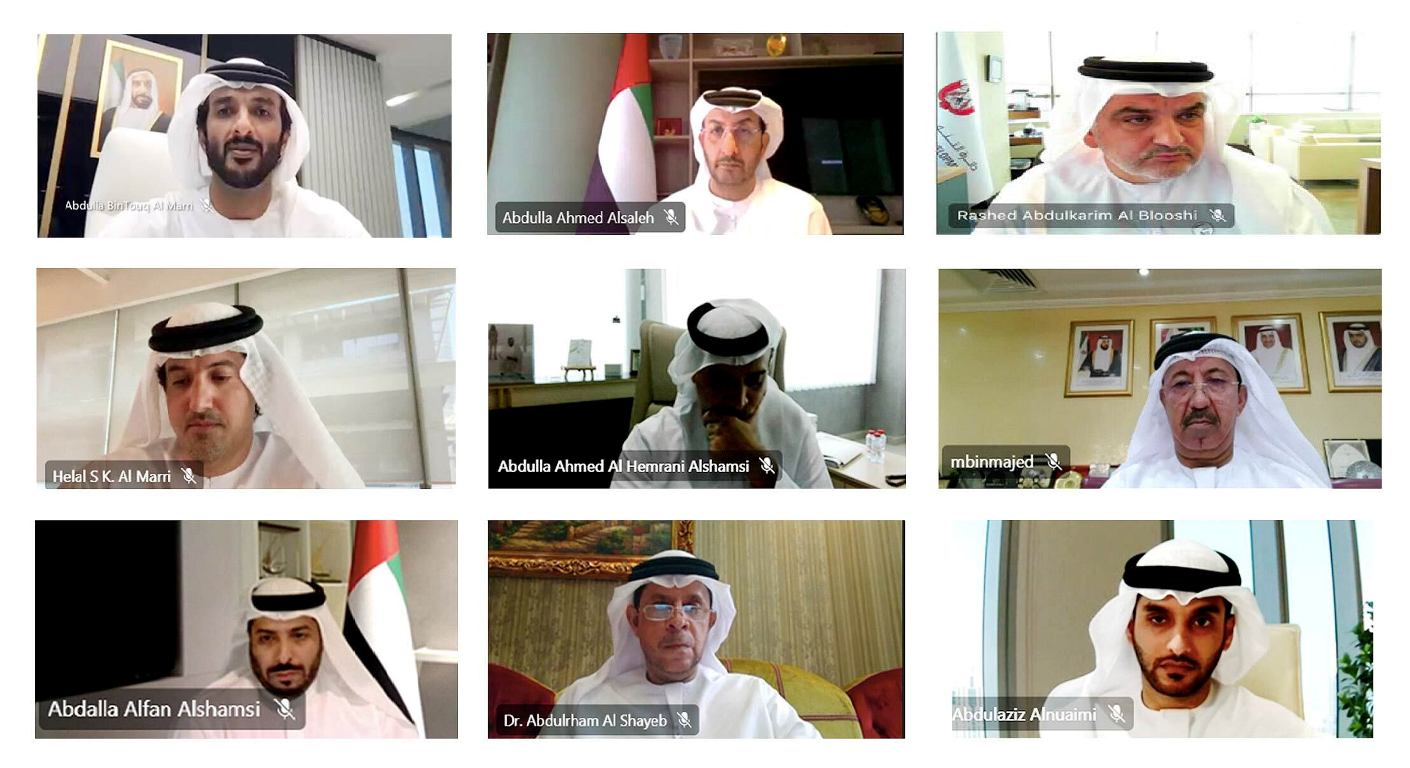ABU DHABI, UAE – The Economic Integration Committee held its second meeting this year and discussed a range of key economic issues, including access to legislation supporting the growth of new economy sectors in the UAE.
The meeting was chaired by Abdullah bin Touq Al Marri, Minister of Economy, and attended by Dr. Thani bin Ahmed Al Zeyoudi, Minister of State for Foreign Trade and representatives of the local economic development departments from all emirates.
The meeting also discussed cooperation between the federal and local authorities concerned with the implementation of these laws. The Committee also discussed strengthening of the Anti-Money Laundering/ Combating the Financing of Terrorism ( AML/CFT) efforts of the Ministry of the Economy and its partners.
Bin Touq reviewed prominent economic growth indicators achieved by the UAE in 2022, under the vision and guidance of the country’s wise leadership.
These include the GDP growth that totaled US$441 billion (AED 1.62 trillion) at constant prices, up 7.6 percent, whereas current prices reached US$506 billion (AED 1.86 trillion), growing by more than US$91 billion, up 22.1 percent from 2021.
The growth figures reflect the UAE’s robust economic performance in various sectors and economic and trade activities despite global economic shifts.
He explained that the tourism sector has been one of the key drivers of economic growth over the past year, adding that tourism and travel sector’s contribution to GDP increased by 60.2 percent in 2022 to reach nearly US$45 billion.
It is set to reach US$49 billion by the end of 2023, with an 8.3 percent year-over-year growth.
According to a report by the World Tourism and Travel Council, international visitor spending reached US$32 billion in 2022, up 65.3 percent from 2021, while domestic tourism spending totaled US$12 billion in 2022, up 35.7 percent.
Bin Touq explained that these indicators underscore the importance of the tourism sector in promoting the growth and competitiveness of the national economy and driving the country’s sustainable development in light of the Principles of the 50.
The Minister of Economy also said that the UAE’s legislative and economic environment has witnessed considerable developments that have contributed to enhancing the investment climate and creating a competitive, resilient and sustainable business environment.
It also promotes opportunities and enablers for the business community, investors and entrepreneurs through numerous economic legislation and policies formulated in accordance with global best practices, thereby supporting the We the UAE 2031 vision goals.
The UAE is currently establishing itself as one of the best globally in the development of proactive legislation governing the new economic sectors, thus solidifying its position as a leading global hub for trade and investment.
Bin Touq said, “The Committee, in collaboration with federal and local stakeholders, continues to work expeditiously to finalize the establishment of the national economic register across all emirates, relying on the latest practices in this regard.”
The Committee reviewed the progress made in the development of the National Economic Register, which included two phases.
The first was linking companies and institutions’ data licenses issued locally by various emirates of the UAE; while the second phase linked free zones companies and institutions’ data licenses, as well as the data of all types of licenses across the UAE and free zones.
The Committee also discussed the latest updates on the UAE AML/CFT Mutual Evaluation report and followed up on the operational plan of corporate registrars, which is witnessing concerted national efforts to strengthen the ultimate beneficial owner procedure of private sector enterprises.
The Committee’s efforts will lead to achieving full compliance with the AML/CFT legislation, decisions, and regulations, in line with the best international standards and practices and the results and requirements of FATF.
Bin Touq commended the efforts of the Ministry of Economy and the economic development department teams in achieving the objectives of the National AML/CFT Strategy.
Also reviewed was a series of new proposals for commercial arbitration law, which will enhance the resilience and competitiveness of the country’s business and investment environment in accordance with global best practices.
The Committee is also working on strengthening cooperation with the federal and local stakeholders to implement the Federal Decree-Law No. 37 of 2021 on the Commercial Register.









